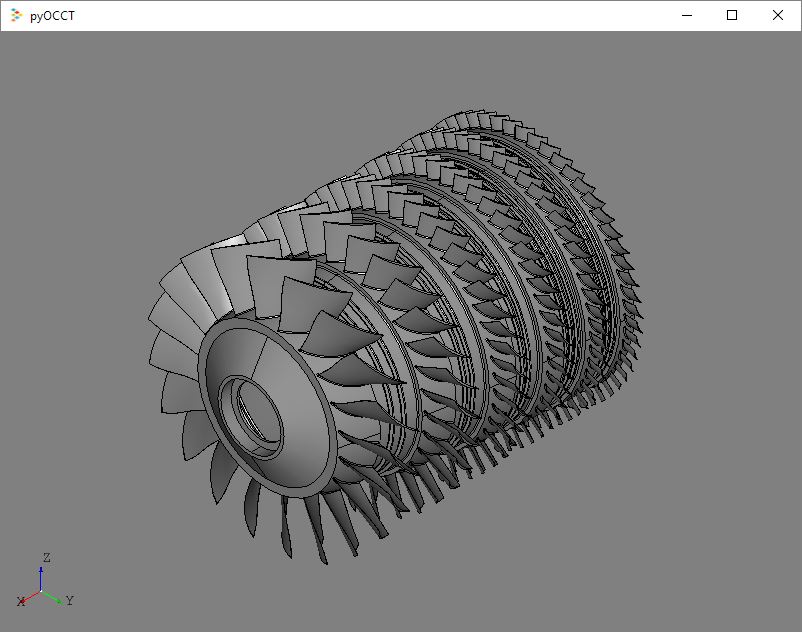The pyOCCT project provides Python bindings to the OpenCASCADE 7.4.0 geometry kernel and SMESH 8.3.0 meshing library via pybind11. Together, this technology stack enables rapid CAD/CAE application development in the popular Python programming language.
The pyOCCT core technology stack includes:
-
OpenCASCADE: Open CASCADE Technology (OCCT) is an object-oriented C++ class library designed for rapid production of sophisticated domain-specific CAD/CAM/CAE applications.
-
Salome Platform: Open-source software that provides a generic pre- and post-processing platform for numerical simulation. It is based on an open and flexible architecture made of reusable components.
-
Netgen: Advanced meshing capabilities including 3-D tetrahedral and 2-D unstructured quad-dominated surface meshing.
-
pybind11: A lightweight header-only library that exposes C++ types in Python and vice versa, mainly to create Python bindings of existing C++ code.
Conda packages are available for a number of platforms and Python versions. Get started with:
conda create -n pyocct python=3.8
activate pyocct
conda install -c conda-forge -c trelau pyocct
This will create an environment named "pyocct" and install pyOCCT and all necessary dependencies.
You can replace the "pyocct" environment name with anything you'd like.
To support minimal visualization the wxPython package is required and can be installed via conda by:
conda activate pyocct
conda install -c conda-forge wxpython
Navigate to the examples/ folder and run from the active environment:
python import_step.py
and you should see the following image in the viewing tool if all the requirements are correctly installed.
Installation files can be cleaned up by:
conda clean -a
If you're looking to build from sources, you might notice that the src/ folder only
contains binding source code for the SMESH modules. To build from sources, you must generate the
binding source code locally. This can be done using the
pyOCCT_binder project which is available as a
git submodule in this repository within the binder/ folder.
Clone this repository and use the --recurse-submodules command to initialize and download the
external pyOCCT_binder project:
git clone --recurse-submodules https://github.com/trelau/pyOCCT.git
The binder uses clang to parse the C++ header files of the libraries and generate the source
code. If you are familiar with conda, an environment can be created for this task by:
conda env create -f binder/environment.yml
If all the necessary dependencies are available, the binder can be run to generate the binding sources:
python binder/run.py -c binder/config.txt -o src/occt
At the moment, only the OpenCASCADE bindings are automatically generated. Eventually, the SMESH bindings will be auto-generated as well. Be sure and check the output from the binding generation process in the command prompt in case there are missing header files or other errors.
After the binding sources are generated:
mkdir build
cd build
cmake ..
Note that PTHREAD_INCLUDE_DIR will likely need defined manually since it cannot typically not be
automatically found by CMake.
